News
-
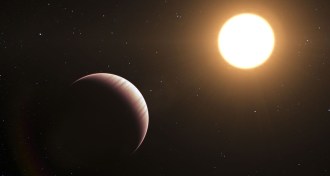 Astronomy
AstronomyExoplanet water seen in new light
Astronomers used a new technique to characterize the atmosphere of a gas giant exoplanet.
-
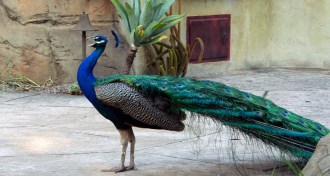 Animals
AnimalsPeacocks sometimes fake mating hoots
Peacocks may have learned a benefit of deception by sounding their copulation calls even when no peahens are in sight.
By Susan Milius -
 Neuroscience
NeuroscienceBrain uses decision-making region to tell blue from green
Language and early visual areas of the brain are not crucial for distinguishing colors, an fMRI study suggests.
-
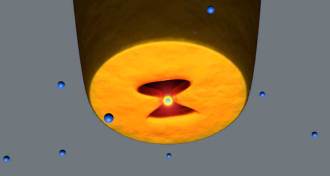 Physics
PhysicsLaser tweezers manipulate objects just 50 nanometers wide
Technique could allow scientists to move proteins, viruses and nanomaterials.
By Andrew Grant -
 Health & Medicine
Health & MedicineBereavement can take toll on health, not just emotions
In the month after a partner dies, spouse more prone to heart attack, stroke.
By Nathan Seppa -
 Psychology
PsychologySuicide rates drop in big cities
With more social connections, people may be less inclined to take their own lives.
By Meghan Rosen -
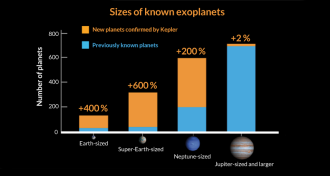 Astronomy
AstronomyKepler space telescope data uncovers 715 new planets
Astronomers used a new tool to quickly confirm the detection of exoplanets.
-
 Health & Medicine
Health & MedicineExperimental drug no Methuselah formula
Compound lets mice live healthier lives but doesn't extend life span.
-
 Neuroscience
NeuroscienceGirls may require more mutations than boys to develop autism
New results may help explain why more males wind up with autism.
-
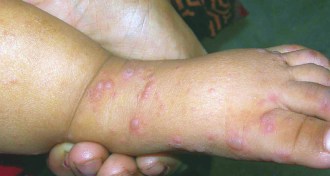 Health & Medicine
Health & MedicineExperimental vaccines protect children from hand, foot and mouth disease
Shots prevented cases resulting from enterovirus 71.
By Nathan Seppa -
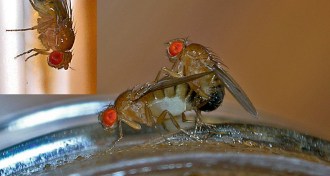 Life
LifeRivalry helps fruit flies maintain brainpower
In lab tests, males dim mentally after generations without competitors.
By Susan Milius -
 Physics
PhysicsQuantum droplet discovered
Electrons and holes gather to form a tiny, liquidlike particle.
By Andrew Grant